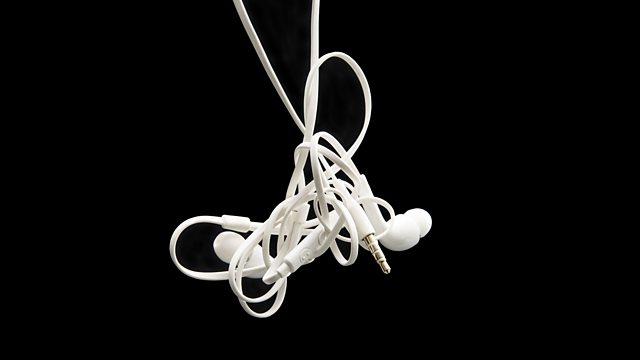Why do my cables keep getting tangled?
We investigate the knotty problem of jumbled cables and discover how understanding physics might help us prevent them from tangling up.
Anyone who has ever taken the Christmas lights out of the cupboard, only to discover they’re hopelessly tangled, will sympathise with this week’s listener Eric. He has a 45m garden hose that always seems to snarl up and snag when he waters his garden, and he wonders what he’s doing wrong?
Marnie starts by discovering the important difference between tangles and knots, as she scales a cliff with an experienced climber who explains the way you tie rope is a matter of life and death.
Physicists are also fascinated in how string becomes jumbled up and one man has even won an IgNobel award for his work in this field. Doug E Smith discovered that if you put a piece of string in a box then spin it around, its length, thickness and how long you shake the box for, all determine whether it will tie itself up. Not only that, the more the string becomes twisted, the more likely it is to cross over itself and become impossible to untangle.
While tangles might be annoying in hair or cables, they’re also a fundamental part of human life. Our DNA is constantly folding itself to fit inside tiny spaces – there are two metres of the stuff inside every cell, where it’s packed down tightly, before it must untangle and duplicate for those cells to divide. It does this with the help of specific enzymes, and when the process goes wrong it leads to cell death. But scientists are also studying molecular tangles that might benefit us humans, and creating nano-sized knots that can be turned into nets or meshes with incredible properties.
Producer: Ilan Goodman
Presenter: Marnie Chesterton
Last on
More episodes
Next
Clip
-
![]()
Why scientists made the world’s tightest knot
Duration: 02:25
Broadcasts
- Fri 16 Jul 2021 19:32GMT����ý World Service
- Mon 19 Jul 2021 01:32GMT����ý World Service
- Mon 19 Jul 2021 08:32GMT����ý World Service
- Mon 19 Jul 2021 12:32GMT����ý World Service except East and Southern Africa, East Asia, South Asia & West and Central Africa
Podcast
-
![]()
CrowdScience
Answering your questions about life, Earth and the universe



